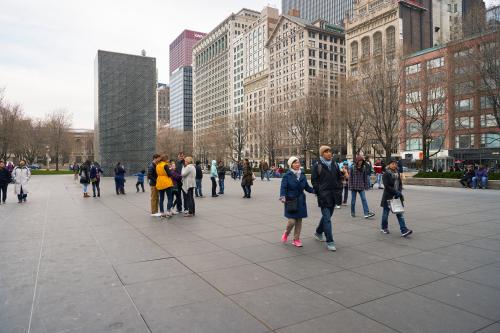In immigration circles, there are two prevailing arguments around how to fix our broken immigration system.
The first position advocates for an approach that focuses exclusively on enforcement. This approach includes increased funding, technology and personnel at the border, as well as interior enforcement and a work-verification system. The primary objective is to keep out unwanted immigrants, criminals, terrorists and drugs. Knowing that mass deportation would be prohibitively costly and morally repugnant, this position argues that over time, some immigrants will “self-deport” as job opportunities dry up due to increased enforcement.
However, even during the recession we have not experienced a mass exodus, just a reduction in new immigrants arriving in the U.S.
Moreover, an enforcement-only approach is costly — we have seen a sharp increase in federal spending on surveillance and security — and does not address the reality of our labor needs.
The second position calls for a more comprehensive approach, along the lines that President Obama spoke of in his speech. This package of reforms includes the enforcement strategies of the first approach and adds an earned legalization program and adjustments to legal channels of entry for both temporary and permanent immigrants. It also includes the DREAM Act, which allows youth without legal status (through no fault of their own) to contribute to the country they grew up in by earning citizenship through higher education or military service.
Arguments against comprehensive reform often center on the legalization component: It is unfair to reward immigrants who have broken the law, the arguments go; it sends a signal that the U.S. looks the other way when it comes to this behavior; and it is unfair to immigrants who are waiting in line to enter the country legally.
Enforcement-only shortsighted
In reality, we have been operating with an enforcement-only approach since the latter part of the Bush administration. George W. Bush initiated the Secure Fence Initiative, and the Obama administration has continued beefing up security with more funding and more personnel on the Southern border than ever before. National security and border enforcement is an area both sides agree on.
But we also need to look forward. Demographic trends argue for comprehensive immigration reform. This approach recognizes that immigrants and their children not only are part of our labor force and our communities, but a large part of our future, too.
The United States enjoys a population growth rate higher than its peers in the industrialized world. Given the graying of America, we need immigration to supply younger workers to maintain our competitive edge in the global market. In this decade, more than one-third of U.S. population growth came from immigration; more if we include the offspring of immigrants. Nationwide, nearly one-quarter of all children have at least one foreign-born parent.
Pushing the DREAM Act without waiting for a congressional debate on broader reform would be a sensible step in the right direction. But Americans want action on the bigger problem, and opinion polls show a majority support earned legalization. We cannot “kick the can down the road” again.



Commentary
Op-edConsidering Earned Legalization for Immigrants
July 2, 2010